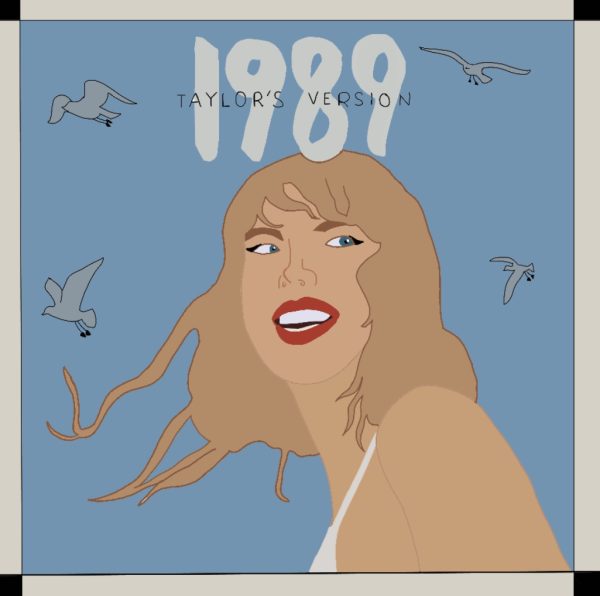
Taylor Swift’s journey of reclaiming her own music continues following last week’s re-release of “1989.”
The re-recording of an entire discography is generally unheard of for musical artists. This project began in 2019, when Swift’s original label Big Machine Records sold her first six albums to music executive Scooter Braun without her knowledge. The selling to Braun felt like a personal betrayal to Swift, who had previously called him an “incessant, manipulative bully.” But Swift still owned the lyrics and music to her own songs and announced she would re-record her entire discography up until 2019.
So far, we’ve received “Fearless,” “Red,” “Speak Now” and as of last week “1989 (Taylor’s Version).” These records, although mainly consisting of songs fans already know, also introduce songs “From the Vault,” meaning they were written during the production of the album but did not make it on the record. Fans are also introduced to Taylor Swift’s matured vocals as a majority of these albums were recorded around a decade ago.
“1989” is a key album in Swift’s career, successfully transforming her image from country artist to pop star. Songs like “Shake it Off,” “Blank Space” and “Style” have become quintessential pop hits, contributing to “1989”’s wins at the 2016 Grammy Awards for both Album of the Year and Best Vocal Pop Album. Inspired by synth-pop from the 1980s, Swift creates a brand new sound for herself. “1989” is also celebrated for a new level of maturity within the lyrics, introducing a new understanding to love and relationships, especially through songs like “Clean” and “Out of the Woods.”
According to Billboard, “1989 (Taylor’s Version)” was the most streamed album in a single day in Spotify’s history. Many fans online have described the record as “the best re-recording yet.” Songs like “I Know Places” and “Wonderland” were not necessarily stand-out tracks on the original album yet they are re-invented through Swift’s matured vocals. One of the main criticisms of “1989” was a lack of depth in Swift’s lyrics, especially in contrast to the lyrics on “Red,” her previous album at the time. The vault songs, however, have solidified “1989” as a lyrically strong album with vault tracks exploring the depth of relationships.
The first track, “Slut!” alludes directly to the reputation Swift had acquired at the time, which she mentions in her prologue: “I had become the target of slut shaming — the intensity and relentlessness of which would be criticized and called out if it happened today.” This was especially a result of media criticism she was receiving at the time, which claimed she had too many boyfriends and that she only wrote songs about her exes.
Fans were especially curious about how “Slut!” would sound, some speculating it would be a girl power anthem or an angry song. Instead, “Slut!” is a melodic love song about embracing the criticism she is receiving: “If they’re gonna call me a slut / It might be worth it for once.” The song foreshadows many of the themes that would emerge in her following album, “Reputation.”
Jack Antonoff, one of Swift’s long-time producers and co-writers, has a clear influence on many of the vault songs as evidenced by their resemblance to Swift’s 2022 album “Midnights,” which Antonoff produced. “Is It Over Now?,” a song reflecting on the end of an unfaithful relationship, shares an undeniably similar intro to “Labyrinth” on “Midnights.” “Say Don’t Go,” “Now That We Don’t Talk” and “Suburban Legends” also share this “Midnights”-esque sound, with heavy emphasis on synthesizers combined with intimate lyrics and bright pop beats. These vault songs are generally upbeat and dynamic, yet have heartbreaking lyrics like “You don’t knock anymore / and I always knew it / and my life is ruined” on “Suburban Legends.”
“1989” may be Swift’s best re-recording yet; it does justice to her already beloved tracks, especially classics like “Wildest Dreams.” As for the vault tracks, they mesh seamlessly with the character of the album, the combination of love and heartbreak and a new pop sound, even adding lyrical depth to the album as a whole.



Leave a Comment